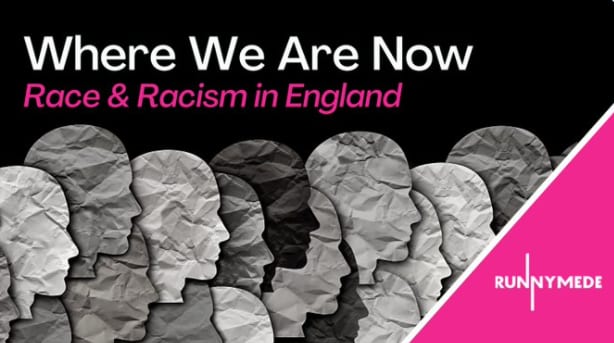
The Civil Society report on the state of race and racism in England should serve as an urgent wake up call to policy makers. The prevalence of racism and discrimination against Black and Minority Ethnic (BME) people across all aspects of society demonstrates that the issue is systemic and structural change must be led by policy makers at all levels of governance.
The report has been curated by the Runnymede Trust and contributed to by a broad coalition of organisations. The experiences and findings in the report have been submitted as evidence on the EHRC's procedural request to conduct an independent civil society review on the state’s progress on race and racism in England over the past four years.
The report finds that systemic racism impacts people’s housing quality, education, employment and political participation. Inequalities in these socio-economic factors leads to inequalities in long-term health outcomes and can drastically reduce a person’s healthy life expectancy.
‘Where We Are Now: Race and Racism in England’, published on 14 July reports that between 2017-2019 three per cent of English households had damp in more than one room. For Bangladeshi households that figure rose to 10 per cent and 13 per cent for mixed white and Black Caribbean households.
Living in low quality housing with issues such as damp leads to immediate and long-term physical health conditions. Our funded partner, the Local Conversation in Lozells, Birmingham told us:
“One of the big issues is poor quality housing. We have many children who have asthma problems, breathing, respiratory problems. When we talk to parents, it turns out that they are living in damp conditions, they’re paying rent to a landlord, and the issues aren’t being dealt with appropriately.”
Housing issues also contribute to mental health problems and more complex overall health outcomes due to a lack of control people face over their living conditions.
Another finding highlighted the inequalities within education. By the end of secondary school, Gypsy, Roma and Traveller pupils are almost three years behind, and Black Caribbean students are 11 months behind their white counterparts.
Inequalities in education have an impact not just on people’s life choices and ability to progress in their career but it directly impacts people’s life expectancy. By the age of 30 those with the highest levels of education are expected to live four years longer than those with the lowest levels of education.
Whilst we know that Gypsy, Roma and Traveller communities face some of the biggest inequalities in society, recently introduced legislation has done nothing to address the discrimination and actually risks increasing inequalities. The Police, Crime, Sentencing and Courts Bill was introduced despite objections from Gypsy, Roma and Traveller communities.
Our Active Communities funded partner Gypsy And Traveller Empowerment For Hertfordshire (GATE Herts) conducted a survey about the ramifications of the new Bill. In the survey by GATE Herts, 94.74% of respondents reported witnessing more hate crime/speech since the introduction of the proposals in the PCSC Bill.
The discrimination faced in day to day life cannot be separated from the discrimination faced in public institutions such as schools, prisons and health care services. The Civil Society report found that hate crimes towards East & South East Asian communities tripled in the first quarter of 2020 and doubled in the second quarter, as compared to previous years.
We know that hate crime and racism aimed at individuals is on the rise. Our Active Communities funded partner Race Equality First reported that hate crime had increased during the COVID-19 pandemic. And we know that the COVID-19 mortality rate was higher for almost all minoritised ethnic groups. The rate of death involving COVID-19 was highest for the Black African group, 3.7 times greater than for the White British group for males, and 2.6 greater for females.
Regarding the impacts of the pandemic, Sy Joshua, Advice Service Manager with Race Equality First, said:
“We knew going into the pandemic that people from Black and Minority Ethnic communities were going to be disproportionately impacted and we were sadly proved right. From the outset we needed more support for different cultures through better health messaging and access to services.
As COVID restrictions ease, we expect it to reveal a deep scar on ethnic minority communities. We have been raising awareness of the deep rooted inequalities that exist in Wales for over 40 years and we hope that this will be a wake up call to governments and policy makers.
Now more than ever communities need to be empowered and given the resources to tackle discrimination and systemic inequalities.”
The Commission on Race and Ethnic Disparities report published in March 2021 found that ‘institutional racism doesn’t exist’. The report was criticised by race equality and human rights organisations as well as individuals with lived experience of racism.
It is clear from the findings in the Civil Society report on the state of race and racism in England, the disproportionate impacts of the COVID-19 pandemic and, the lived experience of the communities we fund that this issue is systemic.
Policy makers have recently turned their attention to levelling up and tackling the inequalities exacerbated during COVID-19. To do this they must acknowledge and accept the evidence that continues to expose racism as a systemic issue in England and beyond and, they must tackle it as a human rights, equality and health priority.
